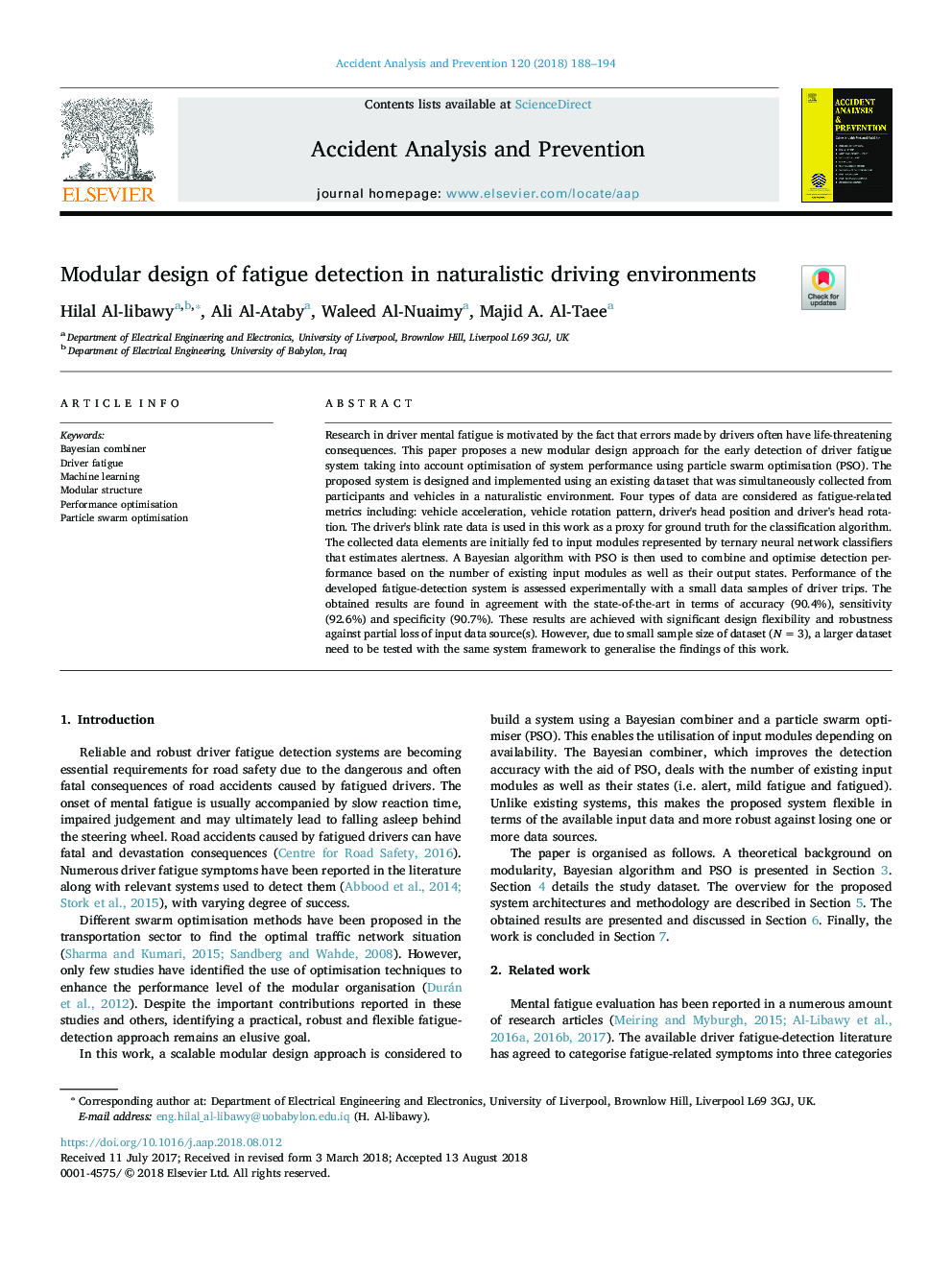| Article ID | Journal | Published Year | Pages | File Type |
|---|---|---|---|---|
| 11002988 | Accident Analysis & Prevention | 2018 | 7 Pages |
Abstract
Research in driver mental fatigue is motivated by the fact that errors made by drivers often have life-threatening consequences. This paper proposes a new modular design approach for the early detection of driver fatigue system taking into account optimisation of system performance using particle swarm optimisation (PSO). The proposed system is designed and implemented using an existing dataset that was simultaneously collected from participants and vehicles in a naturalistic environment. Four types of data are considered as fatigue-related metrics including: vehicle acceleration, vehicle rotation pattern, driver's head position and driver's head rotation. The driver's blink rate data is used in this work as a proxy for ground truth for the classification algorithm. The collected data elements are initially fed to input modules represented by ternary neural network classifiers that estimates alertness. A Bayesian algorithm with PSO is then used to combine and optimise detection performance based on the number of existing input modules as well as their output states. Performance of the developed fatigue-detection system is assessed experimentally with a small data samples of driver trips. The obtained results are found in agreement with the state-of-the-art in terms of accuracy (90.4%), sensitivity (92.6%) and specificity (90.7%). These results are achieved with significant design flexibility and robustness against partial loss of input data source(s). However, due to small sample size of dataset (Nâ¯=â¯3), a larger dataset need to be tested with the same system framework to generalise the findings of this work.
Keywords
Related Topics
Physical Sciences and Engineering
Chemical Engineering
Chemical Health and Safety
Authors
Hilal Al-libawy, Ali Al-Ataby, Waleed Al-Nuaimy, Majid A. Al-Taee,
